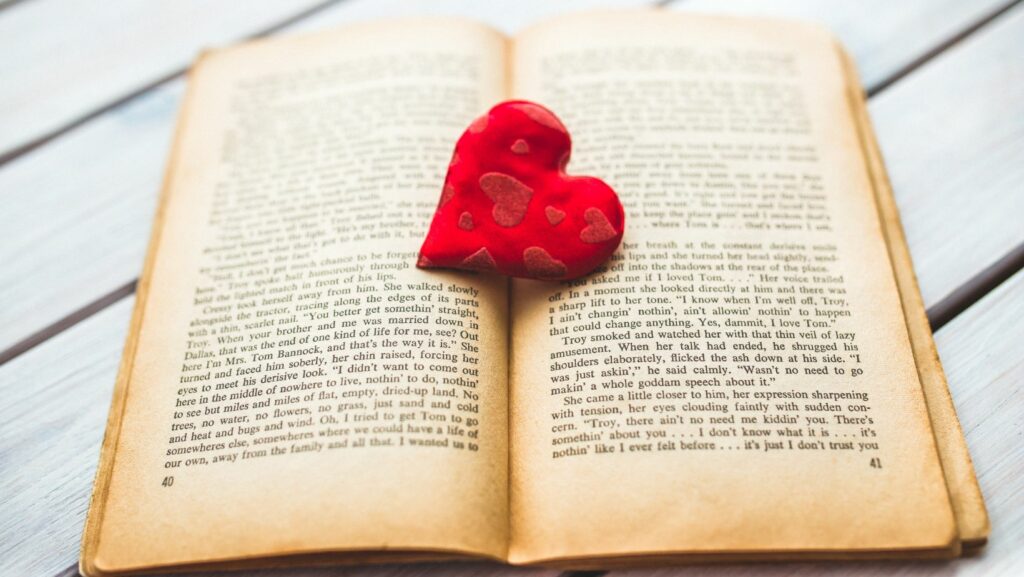Love Token Meaning
 Love tokens have been cherished symbols of affection and commitment for centuries. These small, often handcrafted items carry deep emotional significance, representing the giver’s feelings and intentions. From engraved coins to personalized jewelry, love tokens come in many forms, each with its unique story and meaning.
Love tokens have been cherished symbols of affection and commitment for centuries. These small, often handcrafted items carry deep emotional significance, representing the giver’s feelings and intentions. From engraved coins to personalized jewelry, love tokens come in many forms, each with its unique story and meaning.
Understanding the history and cultural significance of love tokens can deepen one’s appreciation for these sentimental gifts. They aren’t just simple trinkets; they’re heartfelt expressions that transcend time and speak volumes about the human desire to connect and express love. Whether given as a promise, a memento, or a heartfelt gesture, love tokens hold a special place in the tapestry of human relationships.
Historical Origins Of Love Tokens
Love tokens have ancient roots, tracing back to early civilizations where objects symbolized affection. In Ancient Rome, lovers exchanged inscribed coins, often bearing messages of love or short poems. Medieval Europe saw the rise of romantic gestures through rings, brooches, and handkerchiefs adorned with personal touches, like initials or love knots.
During the Victorian era, love tokens gained popularity in England and the United States. Coins often had one side smoothed and engraved with initials, dates, or sentimental messages. These tokens served as tangible symbols of affection and commitment between suitors.
Maritime traditions also played a role in the history of love tokens. Sailors carved intricate designs on coins or pieces of ivory and wood, gifting them to loved ones as keepsakes before long voyages. These tokens represented the sailor’s promise to return home safely.
In tribal cultures, love tokens often involved handmade items like woven bracelets or beaded necklaces. These items held significant value, as the time and effort invested symbolized deep affection.
Understanding the historical origins of love tokens enhances their sentimental value. By appreciating the diverse cultural practices surrounding love tokens, modern expressions of affection gain depth and historical context.
Cultural Significance
Love tokens hold diverse meanings across cultures, reflecting universal themes of affection and commitment. Their forms and traditions vary, highlighting each society’s unique way of expressing love.
Love Tokens In Different Cultures
Different cultures have distinct love token practices. Ancient Roman lovers exchanged inscribed coins, while Chinese couples often shared intricate lockets symbolizing eternal love. In France, handwritten letters romantically express heartfelt sentiments. Scandinavian cultures use carved wooden spoons, known as “lover’s spoons,” demonstrating craft and care.
Symbolism And Traditions
Symbolism intertwines with love tokens through various traditions. In Victorian England, initials engraved on coins signified a personal touch. Native American beadwork, featuring specific patterns and colors, conveyed stories of love and courtship. Japanese omamori, small charms exchanged between partners, symbolize protection and well-being, blending love with cultural heritage.
Types Of Love Tokens
Love tokens come in various forms, each holding unique significance in expressing affection and commitment.
Traditional Love Tokens
Traditional love tokens include items like engraved coins and personalized jewelry. Coins with heartfelt inscriptions date back to Ancient Rome, where lovers exchanged them as symbolic gestures. Medieval Europe introduced personalized rings and brooches, often featuring intricate designs or initials. Victorian England and the United States popularized engraved initials and sentimental messages on small items like medallions and lockets. Sailors crafted handmade tokens to gift to loved ones before embarking on long voyages. Handmade woven bracelets in tribal cultures also symbolized deep affection, demonstrating the rich history and cultural importance of these tokens.
Modern Expressions Of Love Tokens
 Modern love tokens have evolved to incorporate contemporary elements. Custom jewelry, such as engraved bracelets or necklaces with fingerprint imprints, reflect personalized affection. Digital tokens, like e-cards and video messages, have gained popularity with the rise of technology. Couples often share personalized photo books or scrapbooks, capturing shared memories. Tattooing has become a significant modern love token, with couples getting matching or complementary designs. Custom-made items like engraved kitchenware or home décor pieces highlight modern interpretations of traditional gestures, combining personalization with practical use.
Modern love tokens have evolved to incorporate contemporary elements. Custom jewelry, such as engraved bracelets or necklaces with fingerprint imprints, reflect personalized affection. Digital tokens, like e-cards and video messages, have gained popularity with the rise of technology. Couples often share personalized photo books or scrapbooks, capturing shared memories. Tattooing has become a significant modern love token, with couples getting matching or complementary designs. Custom-made items like engraved kitchenware or home décor pieces highlight modern interpretations of traditional gestures, combining personalization with practical use.
Love tokens have transcended time and culture, embodying the universal desire for connection and affection. From ancient inscribed coins to modern personalized gifts, these tokens carry profound emotional significance. They aren’t just objects; they’re heartfelt expressions that deepen bonds and celebrate relationships.

